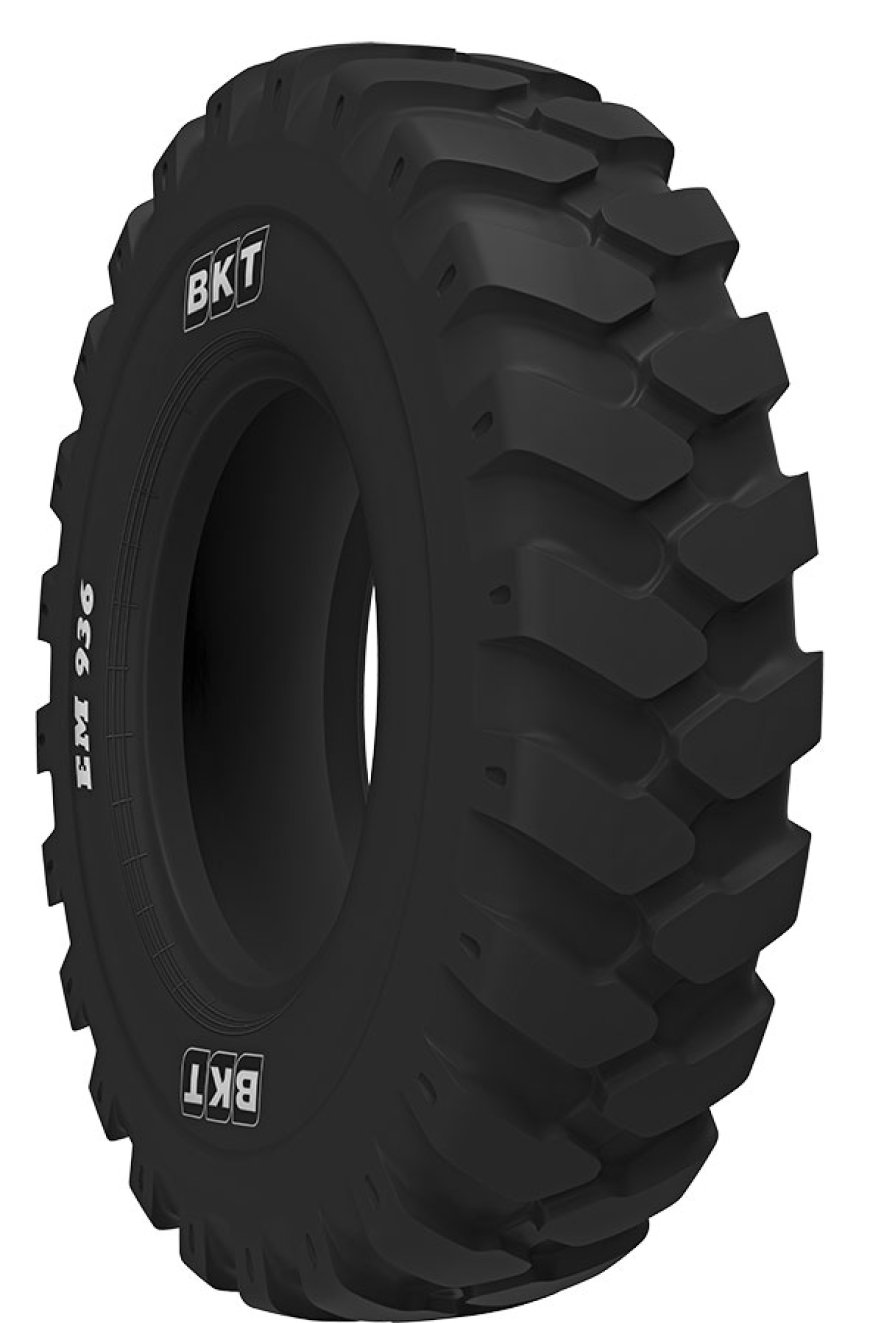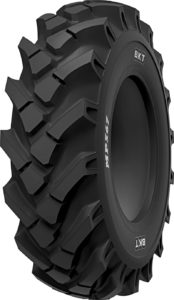India’s OTR tire market is flourishing owing to the rising demand for mining and construction equipment
The recent export figures (FY22) for construction equipment have increased significantly by 60%, making India a global stage. India’s favorable governmental policies, growing infrastructure investment, ample human resources, and mass-scale domestic markets have attributed to OEMs moving their production base here.


– Rajiv Poddar
Joint Managing Director, Balkrishna Industries
What are your views on making India the global construction equipment (CE) manufacturing hub that will indirectly support the component manufacturers?
The recent export figures (FY22) for construction equipment have increased significantly by 60%, making India a global stage. India’s favorable governmental policies, growing infrastructure investment, ample human resources, and mass-scale domestic markets have attributed to OEMs moving their production base here. Now with the country gunning to become the 2nd largest CE market in the world, it is imperative for India to strengthen its freight and logistics infrastructure and be increasingly focused on multimodal transport. From a tire manufacturer’s point of view, advancements toward the growth of construction equipment manufacturing will have a positive impact on component manufacturers. More so, I believe the demand for construction, farming, and mining equipment is expected to propel the Indian OTR tire market.
How do you look at the current market for OTR and industrial tires? Which segments are driving the demand for these tires?
India’s Off the Road (OTR) tire market is flourishing owing to the rising demand for mining and construction equipment, in addition to farming equipment. It is fast emerging to become one of the most promising future-ready sectors in the country and is expected to grow at a rate of 15% by 2025. The privatization of the Indian coal segment, the largest mining sector in India, has evidently also opened many avenues for the OTR tire Industry. Similarly, the demand for iron ore and mining for other metals like zinc are expected to add to this sector’s demand. With such a vibrant mining segment, technologically advanced tires will be vital in achieving the growing demand in India and to support the latest mining trucks and loaders. Also, while the India OTR tire market is largely driven by demand for Bias tires and a small percentage of radial tires, the global market has been witnessing a rising demand for radial tires in the construction/mining sector. BKT is championing this trend by extensively supplying to international markets.
What are the challenges you are facing as a major player?
The geopolitical situation has created unprecedented supply chain-related disruptions, impacting both pricing as well as the availability of raw materials. In addition, the logistics and freight costs continued to remain at elevated levels. This, in turn, may act as a huge restraining factor for the market to grow further at the same pace. For BKT, however, our end-user markets were buoyant despite inflationary trends. As in the past, we gained market share because the off-highway tire industry witnessed higher uptake on an account of healthy demand across mining and agricultural markets.
What are your future plans to cash in the infrastructure boom in India?
Despite the havoc of COVID-19, there’s been an increased demand from the agriculture and mining industries. Taking those as an indicator, BKT sees a continual development for replacement and OEM tires with improved market share.
BKT is continuously marching ahead to explore incremental opportunities in the form of developing ‘Ultra Large Earthmovers & Mining Radial Tires’ markets and making the most of the shift from Bias to Radial Tires, which is growing continuously. Toward this end, BKT is the first company in India to set up an Ultra Large size all-steel OTR Radial tire plant and has further added such capacities by setting up a plant at Bhuj to produce Ultra large size all steel OTR Radial Tires among other categories of tires. BKT has been continuously expanding its base into various sub-segments like agricultural, industrial, construction, mining, winter, and solid tires under both Bias and Radial technologies.
Now with the CE market in India aiming to become the 2nd largest CE market in the world, we will have ample scope for growth.

Give us details about your manufacturing facilities in India?
With an established headquarters in Mumbai, BKT has five tire production/manufacturing sites spread across India—2 plants in Waluj (Maharashtra) and 1 plant each in Bhiwadi (Rajasthan), Chopanki (Rajasthan), and Bhuj (Gujarat) along with a molding plant in Dombivali (Maharashtra).
We have especially been performing R&D to develop an innovative approach to identify alternative sources of natural rubber and produce 30% of raw material internally. More so, having set up our own ‘Carbon Black’ manufacturing unit as a part of backward integration to ensure ease of raw availability. Talent for innovation has been BKT’s strength since its conception, with consistent investments into R&D and tire technology, tire machinery, and tire manufacturing processes. We emphasize R&D, with 2 R&D centers in Bhuj and 1 in Chopanki. We also have a testing facility inside our Bhuj plant, which is equipped with indoor and outdoor testing areas. The outdoor testing area has a special testing track constructed to provide for test runs and on-field tests for the tires. Each product passes over 500 stages of tests through their product cycle. The result of this rigorous practice is that BKT products are known for their reliability and have the lowest claim ratio in the industry.
How technologically advanced are your manufacturing facilities in India?
BKT believes advanced manufacturing technology is the key to innovation. Towards this, we have been rapidly developing sophisticated solutions through co-engineering collaborations, while understanding the deep-rooted needs of varied industries, with a strong belief in the values of ‘Aatmanirbhar Bharat.’ We use state-of-the-art technology for producing our tires and keeping up with the development and digitization of manufacturing standards, we’ve been working on the digitization of our older plants and timely investment for capacity expansion. Automated work processes have helped us achieve a high-yield ratio between material input and output with 99% efficiency, leading to minimal processes. The processes have further helped BKT reduce 12–18% consumption of natural resources like water and coal over the last four years as well as 14 to 15% of waste reduction over the past three years.
Also, what are the safety features incorporated in these facilities?
For BKT, safety has been one of the most important aspects of the workplace. As a focus area, we constantly plan safety measures which controls the number of accidents on the job. Safety Compliance of established Safety procedures and rules are strictly monitored by choosing the most appropriate working tools. We emphasize on constant training of our staff and workmen to keep them updated on the latest safety rules. The company complies with all occupational health and safety management systems as per Factories Act-1948. Occupational health and safety policies at BKT guide us toward continuous improvement of environmental, health, and safety in our workplace. To promote the culture of safety, we follow the work permit system; regular safety & fire drills; external and internal safety audits, 5s Audits; public address system for emergency; emergency siren and lights throughout plant; fire hydrant, portable fire extinguishers systems, and mini fire tender; safety committees; safety patrols; medical check-up for all employees; safety & health training awareness programs; and new employee safety orientation. Additionally, outsourced workforce is evaluated for their safety capabilities and strengths before assigning contracts. They are expected to comply with our policies and practices.
Hits: 4








